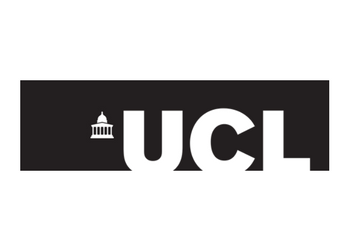

University College London - UCL
speciality: Communication
What is a Communications degree?
Communications is a universal degree, which explores the traditional forms of communication such as verbal, physical, visual and written communication but also extends beyond that to cover mass communication and social media. There are different types of communications degrees depending on the degree level.
Overall, Communications focuses on teaching effective communication through social media, web, print, mass media and verbal communication. However, there are two types of Communications degrees that exist. For instance, a Bachelor of Arts in Communications in the US is focused on preparing students for careers that are connected to writing, marketing, promotions, journalism and public relations. In contrast, Bachelor of Science in Communications is dedicated to the technology used in the science behind modern communication and prepares students for careers in production or sound engineering.
A Communications degree teaches students about how media and communication influences cultures, societies and people’s identities. It involves a significant amount of critical writing and research and covers different disciplines such as journalism, public relations, entertainment production, marketing, event planning and so many more disciplines, which are somehow connected to exchanging information and conveying messages. There are also different specialization options associated with this degree, including political communication, mass media, journalism, health communication, etc.
It is worth noting that a Communications degree has many intersection points with psychology, sociology, linguistics and in some cases politics.
Benefits of a Communications degree
The main benefit of a Communications degree is its universal nature. It applies to almost any subject or professional setting. For example, some of the top careers in the field of Communications include announcers, art directors, editors, broadcast and sound engineering technicians, reporters, correspondents, broadcast analysts, technical writers, writers and authors, interpreters, translators, etc. Therefore, it keeps students’ career options open and doesn’t require them to have a predetermined career path that they want to follow.
Communications degrees prepare students to make an impact from the start of their careers unlike other degrees, which require further training. This is possible thanks to the multitude of professionally accredited degrees in Communications, which develop students’ abilities based on the established standards in the field. Moreover, there are many Communications courses, which offer work placement opportunities that enable students to gain the required professional skills before they have even started their career.
Another benefit associated with Communications degrees is the fact that they develop students’ written and verbal communication skills significantly.
A major advantage of Communications over other degrees is that in most cases there are no prerequisites required to study Communications.
Communications degree structure
The duration of a Communications degree varies depending on the country and degree level. For example, Higher Education Institutions in the UK offer 3-year Bachelor’s courses. In some cases, the course may extend to four years if students are given the opportunity to spend a year abroad or in industry between the second and third year through a sandwich course. Bachelor’s degrees in Communications in the US usually take around four years to complete.
Over the duration of a Bachelor’s Communications degree, students are expected to learn and be able to apply the established communications theories by developing the technical skills required to work in a professional setting. In the first year of their studies, students learn predominantly how media and communication influences cultures, societies and people’s identities. Optional modules may introduce them to professional communication, journalism, documentary, film-making, marketing, etc. In addition to the introductory topics, this degree allows students to learn about more complex areas of communications such as interpersonal relations, brand management and linguistics at a later stage. For instance, the second and third years enable students to get a deeper understanding of theoretical concepts related to media and culture and develop practical skills in research and communications. Additionally, students may have the opportunity to take optional modules and pursue their interests in different areas related to Communications such as gender, race, youth, culture, digital media, political communication, public relations, etc.
The most common duration of a Master’s degree in Communications is between 1 and 2 years depending on the mode of study (full-time or part-time) and country.
PhD and MPhil degrees in Communications require students to dedicate anywhere between 3 and 6 years to their studies depending on the mode and country of study.
3 Student Reviews
Filter reviews-
Language for ...2 months ago
 MarilenaGRA Springboard for Growth and Acceptance
MarilenaGRA Springboard for Growth and AcceptanceAs an international student in Language and Culture, UCL has become more than just a university – it’s a transformative experience. Here, I’ve found academic excellence and a vibrant, accepting community that’s fostered my personal and professional growth.
UCL’s academic reputation precedes itself. World-class professors and a diverse range of courses ensure a stimulating learning environment. But UCL’s true magic lies beyond the classroom. The sheer number of societies (over 300!) caters to every interest imaginable, allowing you to connect with like-minded individuals and explore new passions. Whether it’s debating in the Model United Nations or delving into film appreciation, there’s a society waiting to welcome you.
Financial concerns are a major worry for many international students. Thankfully, UCL offers a wealth of on-campus job opportunities. From working in libraries to assisting with research projects, these positions not only ease the financial burden but also provide valuable work experience. Career fairs and networking events further equip you with the tools to navigate the professional world.
Perhaps the most striking aspect of UCL is its inclusivity. Coming from a diverse background, I’ve never felt more accepted. The university actively fosters a welcoming environment for students from all corners of the globe. This sense of belonging is crucial for international students like myself, allowing us to thrive and contribute our unique perspectives.
My current experience at the Sorbonne in Paris, with its more traditional and closed-off environment, has only intensified my appreciation for UCL’s dynamic spirit. UCL truly embodies the spirit of open-mindedness and global engagement.
In conclusion, UCL isn’t just a university; it’s a launchpad for personal and professional growth. It’s a place to explore your passions, connect with a supportive community, and find your place in the world. If you’re seeking an academic powerhouse with a vibrant and inclusive environment, UCL is undoubtedly the place for you.
View moreProgramme: Language for Intercultural CommunicationDegree: Bachelor'sGraduation: 2025Delivery Type: On CampusCampus: London -
MA Digital ...26 Mar, 2022
 StudentCurriculum setting
StudentCurriculum settingI prepare to comment on my course, mainly from the aspects of curriculum setting and teaching quality. As a student who achieved my bachelor’s degree in the UK, the postgraduate major is relatively similar to undergraduates’.
I think that the curriculum setting for digital media is relatively limited, the major courses are mainly divided into two parts, one course is about gender, the other is relevant to games, and there are only 3 elective courses in total. If you chose a dissertation, there are two electives left. Students almost don’t have any other choices. If you choose to write a report, I must take all three elective courses.
Moreover, courses are usually taught by a main professor, played as the lead teacher, with a PhD student as his/her teaching assistant or a newly hired UCL faculty member. They are not familiar with the curriculum content and teaching objectives, which makes me feel that I am not satisfied with the teaching experience.
View moreProgramme: MA Digital MediaDegree: Master'sGraduation: 2023Delivery Type: BlendedCampus: London -
MA Digital ...03 Mar, 2022
 StudentFocusing on the disadvantages
StudentFocusing on the disadvantagesI would like to share my personal experience after studying for the first half of the year, which is not comprehensive and subjective, focusing on the disadvantages that I think we should take into account:
View more
1. the leader of this group is an associate professor and a part-time lecturer.
The leader of the group is an associate professor plus a part-time lecturer who has just graduated with a Ph.D.
The majority of the classes in the year are taught by their small team, and I feel that the teaching team is not high in terms of title.
For example, last semester’s essay had only one 1to1 tutorial and did not give students very effective guidance, which was a discrepancy from my expectations (of course, if you take the initiative to email the teacher, you will get some feedback, but in the course planning). The feedback and communication on the course planning is not valued)
3. friends 0 bases to start game production and 3D animation must be prepared for ah even after the course most people’s work is very basic level a few have the foundation or self-learning ability is very strong students can present a decent work do not bar how to learn depends on personal efforts I have seen is the professional recruitment of many transfer majors zero-based students and then varying levels of the teaching process is slow and not systematic finally Most people have mediocre software skills
4. strikes more professional teachers are union strikes almost all participate in no class is their loss tuition refund a ninety-four cents just
5. the software classes are all on PC rooms if the epidemic affects distance learning then you can’t use the hardware resources whether your laptop can afford to take the software is a problem
6. only for the reference of students who are concerned about this aspect of the class of fewer than forty foreigners, a total of four including two lovely Malaysian girls who speak Chinese The above is my humble opinion as an interdisciplinary student/undergraduate of Sino-foreign cooperative studies I hope to help you understand more comprehensivelyProgramme: MA Digital MediaDegree: Bachelor'sGraduation: 2020Delivery Type: On CampusCampus: London

